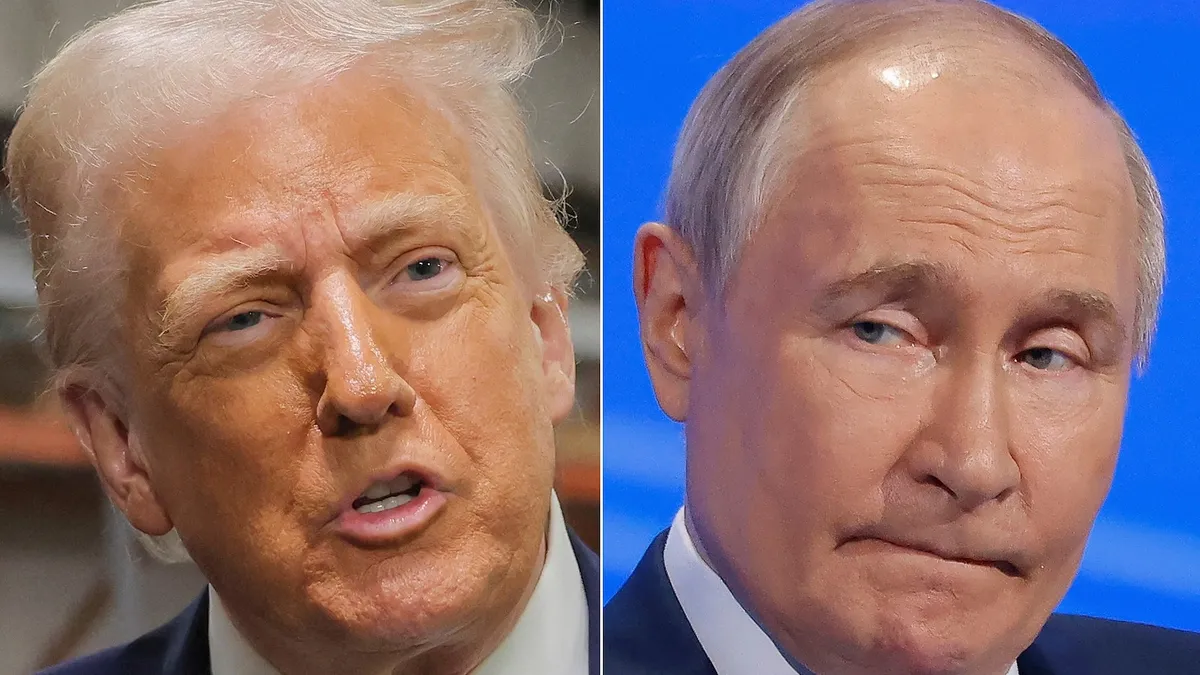
On Tuesday, President Donald Trump engaged in a pivotal phone call with Russian President Vladimir Putin, as the United States strives to broker a ceasefire between Russia and Ukraine. According to a White House readout of the conversation, Putin expressed support for Trump’s proposal for a mutual pause in attacks on energy infrastructure. However, the readout did not mention any commitment from Putin regarding the previously accepted 30-day truce by Ukraine, despite Trump's recent optimism that Moscow would agree.
Both leaders acknowledged the urgent need for an end to the ongoing conflict, with the White House emphasizing the importance of achieving lasting peace. The statement highlighted that the resources—both human and financial—expended by Ukraine and Russia in this war would be better utilized to address the needs of their citizens. The White House remarked that this conflict should never have started and should have been resolved long ago through sincere peace efforts.
During the call, Trump and Putin agreed that the path toward peace would begin with a ceasefire concerning energy and infrastructure, alongside technical negotiations for implementing a maritime ceasefire in the Black Sea. They also discussed the necessity of establishing a full ceasefire and permanent peace, with negotiations set to commence immediately in the Middle East.
Ukrainian President Volodymyr Zelenskyy, speaking at a news conference following the call, expressed skepticism yet acknowledged that even a partial ceasefire would be a positive development. He remarked, "It's hard to tell," regarding the dynamics of Trump and Putin's relationship, but emphasized the importance of conversations to clarify the details of any agreements. Zelenskyy reiterated Ukraine's support for a ceasefire and the importance of not targeting energy infrastructure or naval corridors.
In a social media update later that day, Trump described the call as "very good and productive." He stated that both leaders agreed on an immediate ceasefire concerning all energy and infrastructure, with the understanding that they would work swiftly toward achieving a complete ceasefire and ultimately an end to the ongoing conflict between Russia and Ukraine.
The White House also noted that the discussion between Trump and Putin extended beyond the Ukraine conflict, encompassing broader issues in the Middle East, including Iran. The leaders recognized the substantial benefits of fostering a stronger bilateral relationship, which could lead to significant economic opportunities and enhanced geopolitical stability once peace is achieved.
According to Russian state media, the Kremlin confirmed Putin’s support for Trump’s suggestion of a 30-day halt on attacks targeting energy infrastructure in both Russia and Ukraine. However, the Kremlin's readout indicated that they had identified several significant issues concerning the effective management of a potential ceasefire. These included the need to halt forced mobilization in Ukraine and the rearmament of the Ukrainian Armed Forces. Additionally, Putin suggested that any resolution to the conflict should entail a complete cessation of foreign military and intelligence support to Kyiv.
The Trump administration had previously taken decisive steps to suspend military aid and halt certain intelligence sharing with Ukraine following a contentious meeting involving Trump, Vice President JD Vance, and President Zelenskyy. These actions were reinstated after Ukraine accepted the 30-day ceasefire last Tuesday. Zelenskyy emphasized that any agreement would require Ukraine's approval, reiterating the importance of involving both parties in the negotiations.
As these discussions unfold, it remains crucial for all parties to engage in meaningful dialogue to pave the way for a sustainable and fair resolution to this complex conflict.